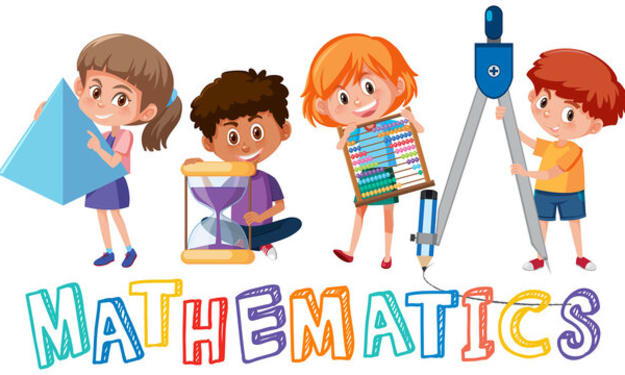The Cognitive Exchange Theory
Chimpanzee’s amazing memory capabilities!!

Inuyama, Japan, is a historic city renowned for having Japan's oldest original wooden castle and housing Kyoto University's Primate Research Institute. At this institute, a group of chimpanzees has been trained to play a game that reveals something astonishing about their memory capabilities.
Here's how the game works: look at these numbers—1, 2, 3—and remember their positions because they will soon disappear. Can you recall and point to where each number was in numerical order? It's fairly simple—1, 2, 3. But let's make it more challenging. Ready to point out the positions of the numbers... now. If you felt you didn’t have enough time to memorize the screen, don't worry; it's normal.
However, here's a chimpanzee given the same brief amount of time to memorize the arrangement. The chimpanzee aces it. Each puzzle is new to the chimpanzee, yet a quick glance is enough for it to capture the positions of all the numbers. How is it possible that a chimpanzee’s memory can surpass ours by such a significant margin?
One theory suggests that humans might struggle with this task because of our ability to talk. Language is one of the key differences between humans and other animals. We possess the cognitive ability to communicate not just about the present, but also about past events and future possibilities. We can tell stories, which is remarkable. But if language is so beneficial, why haven't other animals developed it like we have?
To explore this question, we can compare ourselves to those who were nearly like us. Around 7 million years ago, neither chimpanzees nor humans existed, but there were CHLCAs, or "Chimpanzee-Human Last Common Ancestors." Like us, CHLCAs lacked strong natural defenses or offenses—they had no protective shells, claws, fangs, or venom. Living in the safety of the trees was advantageous. Those who stayed became the chimpanzees we know today. However, for reasons still unknown, some CHLCAs decided to venture onto the savanna. Without physical adaptations, survival depended on cooperation, creative strategies, and assigning roles, all of which are facilitated by having a rich set of symbols that refer to things across time: language.
Many different types of creatures with various adaptations emerged, but today, only one member of this family remains: us. Language, as we know it, may have been one of the crucial strategies that ensured our survival on the savanna. But how exactly did it develop?
The brains of those who developed language and those who didn't aren't entirely different. A brand-new brain structure didn't suddenly appear. Instead, existing anatomical functions were repurposed. Remarkably, detailed short-term memory might have been sacrificed for the sake of language, a concept known as the Cognitive Tradeoff Hypothesis. This hypothesis is the result of decades of research by Professor Tetsuro Matsuzawa, a leading primatologist at Kyoto University's Primate Research Institute.
Founded in 1967, the institute was established for scientific research in collaboration with the nearby Japan Monkey Center. Together, these centers house over 60 species and nearly 1,000 primates living in open spaces.
Professor Matsuzawa has devoted over 40 years to studying non-human primates. He divides his time between fieldwork in Guinea, West Africa, and Japan, where he and his colleagues have created a chimpanzee habitat that replicates wild conditions. This habitat includes Skylab, an open-air laboratory atop the chimpanzees' climbing structure. Here, chimpanzees can freely come and go. When they choose to stay, they engage in cognitively stimulating tasks that mimic foraging behavior.
In Skylab's specially designed computer booths, a camera with facial recognition software identifies each chimpanzee and selects tests based on their familiarity with the task. Each trial lasts about as long as it would take for a chimpanzee to forage a single bite, with each morsel accounted for in their diet. The setup allows for seamless data collection while providing the chimpanzees with an experience similar to their natural foraging activities.
Dr. Matsuzawa has been conducting memory tests on chimpanzees since 1978, revealing their phenomenal, nearly photographic short-term memory. Two notable chimps at the Primate Research Institute (PRI) are Ai, whose name means "love" in Japanese, and her son Ayumu, meaning "walk." By studying these chimpanzees, we can learn more about ourselves. If humans and chimpanzees share a common ancestor, why did chimpanzees not develop language like we did? Could it have been an accident? Our ancestors' habitat provided the pressure to develop language. This is incredible. It turns out we might owe our ancestors' survival to their weakness that pushed them out of the trees.
The Cognitive Tradeoff Hypothesis suggests that in the dangerous world beyond the trees, early humans needed to teach each other and use abstract symbols to refer to hypotheticals and generalities. This type of abstract thinking required sacrificing the detailed, immediate memory of their ancestors. As a result, we can imagine the past and future and describe things abstractly without needing all the details, thanks to labels. It seems like a worthwhile trade-off. Sharing information is what makes us "us."
I'd love to see your working memory tests on chimpanzees in action and participate myself to compare my performance with a chimpanzee. Have you ever had a human and a chimpanzee compete together? This opportunity to do the memory task like a chimpanzee is unique. Let's see how it goes. Today, it will be celebrity chimp Ai. Ai is older now, and like humans, her cognitive abilities have decreased with age, so I might actually stand a chance. Usually, her son Ayumu plays against her, but today, she's up against me. The tests will get harder as we proceed.
In the first round, the task is to remember where three numbers are in numerical order. Once I touch one number, the other two will be covered by solid squares, leaving it up to my memory. If I make a mistake, I hear an error noise; a correct answer is signaled by a chirp. When the chimpanzee gets it right, they are rewarded with apples, while I only get bragging rights. You need to focus more than expected; it's easy to mess up. On my first run, I managed to beat Ai.
The next task is harder. Three numbers appear on a blank screen, but as soon as I touch the first one, the entire screen is covered in boxes. This is a lot tougher. Ai seems to be having fun, although my presence might be distracting her since she's used to playing against her son Ayumu. It was enjoyable competing against Ai, but now I want to see how I fare against Ayumu, Dr. Matsuzawa's best pupil, who aces the memory tests at lightning speeds. However, today Ayumu is not interested in mental challenges; he's busy flirting with the young ladies living with him at the PRI.
And since free choice is the guiding principle of Matsuzawa's research, we can't make Ayumu join us. The good news is, I can still compete against him using the same game he plays: with nine numerals. Let's see if my luck holds against Ayumu as it did with Ai. Oh, man. -[buzzer] -Wow. [laughs] Even with extra time, I can't get it right. Okay, more time. [buzzer] I thought I had that one. Memorizing the positions of nine numerals takes a long time. [buzzer] It's embarrassing how long this takes me. I can do this one. [computer chirps] All right. Yeah. No need to laugh. Thirteen. I got better because you were pressuring me. Six times worse, six times slower. Yeah. I'd love to.
This is the most difficult test. I have to remember all nine numbers in numerical order at Ayumu's speed, meaning I have to memorize them all within the blink of an eye. So I get half a second to prepare? I'm going to prove you wrong. As a reminder, this is how Ayumu performs, which is standard for a young chimp. You got to be kidding me. That's way too fast. -[buzzer] I got the first three. [buzzer] It's like a joke. [buzzer] [laughs] I don't know where the 2 is. [buzzer] It's too fast. Trying to think of this very holistically. [buzzer] After the first three, if I see them, I'm just guessing. [laughs] [buzzer] Yeah. It's impossible.
I hope this was helpful for you. It was the first time you had a chimpanzee and a human together in the booth. What do you think? [both laugh] If you ever need me to study as a primate, I volunteer. Wow. We need to make sure to preserve them. They're already endangered. They are our closest link to understanding where we came from and where we might go. It's like taking care of your family. Quite literally. The fact that humans alone use complex symbolic language doesn't make us better than any other species. It just means the path we took required it. In some ways, we aren't better, because we can talk.
Today, we study those who took different paths to learn more about ourselves. Losing them means losing part of our story—where we came from, who we are, and who we can become.
About the Creator
Enjoyed the story? Support the Creator.
Subscribe for free to receive all their stories in your feed. You could also pledge your support or give them a one-off tip, letting them know you appreciate their work.





Comments
There are no comments for this story
Be the first to respond and start the conversation.